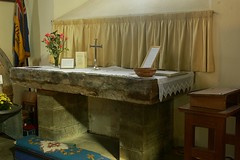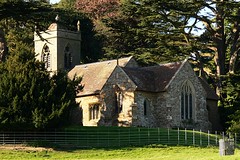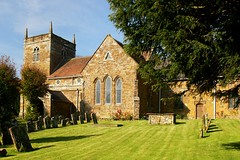
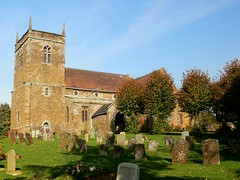
Originally built in the 12th century St Lawrence was rebuilt in the 13th century. It sits on the top of the hill, overlooking Southam.
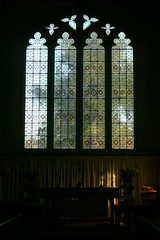
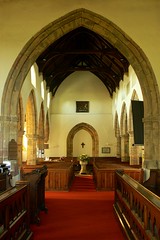
The east window has four modern cinquefoil pointed lights built into a four-center rear-arch.
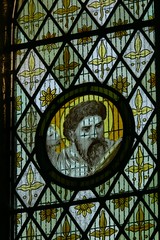
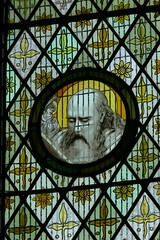
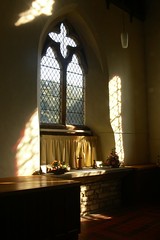
During restoration work in the 1950s two 13th century stone altars were discovered hidden under chapel floor. Most of these medieval altars were destroyed during the reformation as they were considered to be either pagan or popish, and were replaced by wooden tables. These are two rare survivors.
Church website
Comments Off on Napton on the Hill – St. Lawrence.
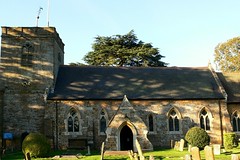
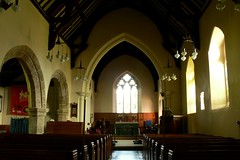
Mid 13th century parish church of St. Leonard’s. The medieval tower was remodelled in 1720. Much of the interior was refitted in 1863 and 1875.
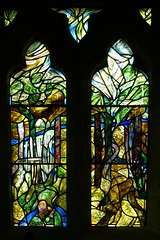
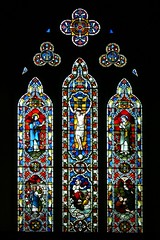
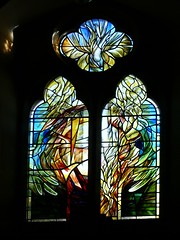
The east window is dated 1875 and the church also contains two modern stained glass windows from 1990’s in the north and south walls. The one in the south wall is dedicated to the village’s musical life.
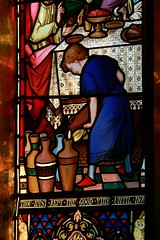
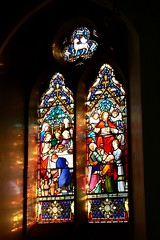
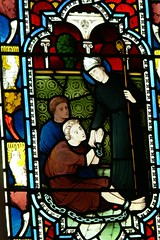
This south chancel window above has tracery of late 13th century style.
Church website.
Comments Off on Priors Marston – St Leonard.
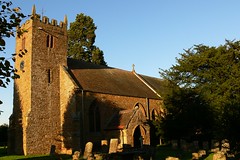
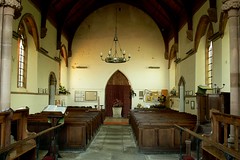
St Mary Blessed Virgin Priors Hardwick. Originally built in the early to mid 13th century but the only parts of that period that still remain are the west tower. A lot of rebuilding and extending occurred in the early 14th century, including extensions to the chancel.
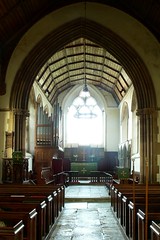
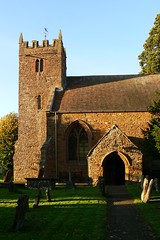
Church website.
Comments Off on Priors Hardwick – St Mary Blessed Virgin.
The Church has been on this site since the 13th Century but the only original part is the base of the tower, the upper part of the tower is 18th century. Most of the rest of the church was rebuilt in 1844.
The interior contains a number of 16th-18th century monuments, dedicated to the Shuckburgh family.
The church itself stands on a small rise in the deer park of Shuckburgh Hall which is a few 100 metres away.
The tower contains 4 bells from the mid 17th century, three of which were made by Henry Bagley.
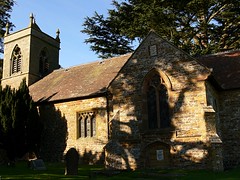
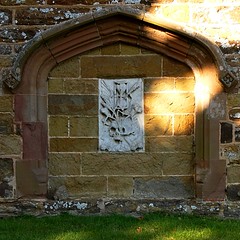
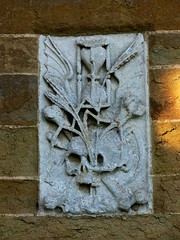
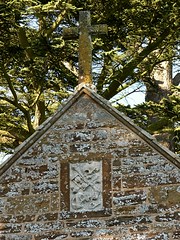
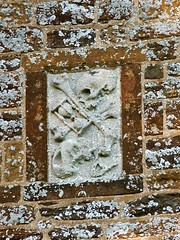
The local church history quotes from “The Kings of England, Warwickshire Book’ by Arthur Mees’s which says these stones came from Cardinal Wolsey’s Palace in Esher, but they look far too modern to me. Another souce says that they are 18th century.
www.british-history.ac.uk/report.aspx?compid=57132
Access: Locked no contact details
Comments Off on Upper Shuckburgh – St John the Baptist in the Wilderness.
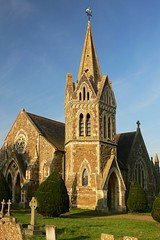
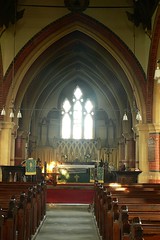
Church of St John the Baptist. Rebuilt after a fire in 1864 the previous church dating back to the late 13th century. Constructed of a mixture of light and dark sandstone with limestone bands, the church stands on the local Blue Lias clay which has caused structural damage due to shrinkage.
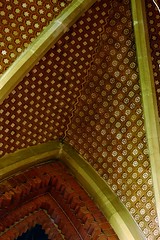
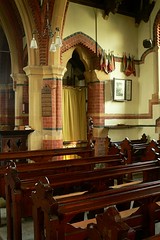
The interior is decorated with Moorish tiles in a Gothic style
Access: Guided access available with churchwarden who lives nearby
Church website.
Comments Off on Lower Shuckburgh – St John the Baptist.







